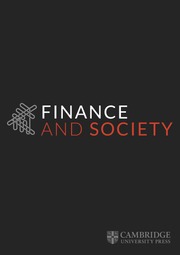Article contents
Model hagiography: A reply to Johnson and Munger on probability, philosophy and transcendental argumentation
Published online by Cambridge University Press: 09 November 2023
Abstract
In his review of my recent book, Abstract Market Theory, Johnson mistakes my investigation into the conditions and limits of probabilistic reasoning as a rejection of its sense and utility. The same misunderstanding also appears in a review by Munger published recently. In both cases this leads to a skewed and reductive understanding of my reconception of the relationship between price and value. In this response, I present an outline of the philosophical goals of Abstract Market Theory. My intent is not just to show that these reviews are incorrect in their presentation of my argument, but to also indicate why a philosophical perspective remains indispensable for our understanding of the market.
- Type
- Review forum
- Information
- Creative Commons
- This is an Open Access article, distributed under the terms of the Creative Commons Attribution-NonCommercial-No Derivatives licence (http://creativecommons.org/licenses/by-nc-nd/4.0/), which permits noncommercial re-use, distribution, and reproduction in any medium, provided the original work is unaltered and is properly cited. The written permission of Cambridge University Press must be obtained for commercial re-use or in order to create a derivative work.
- Copyright
- © 2016 The Author(s)
References
- 2
- Cited by


